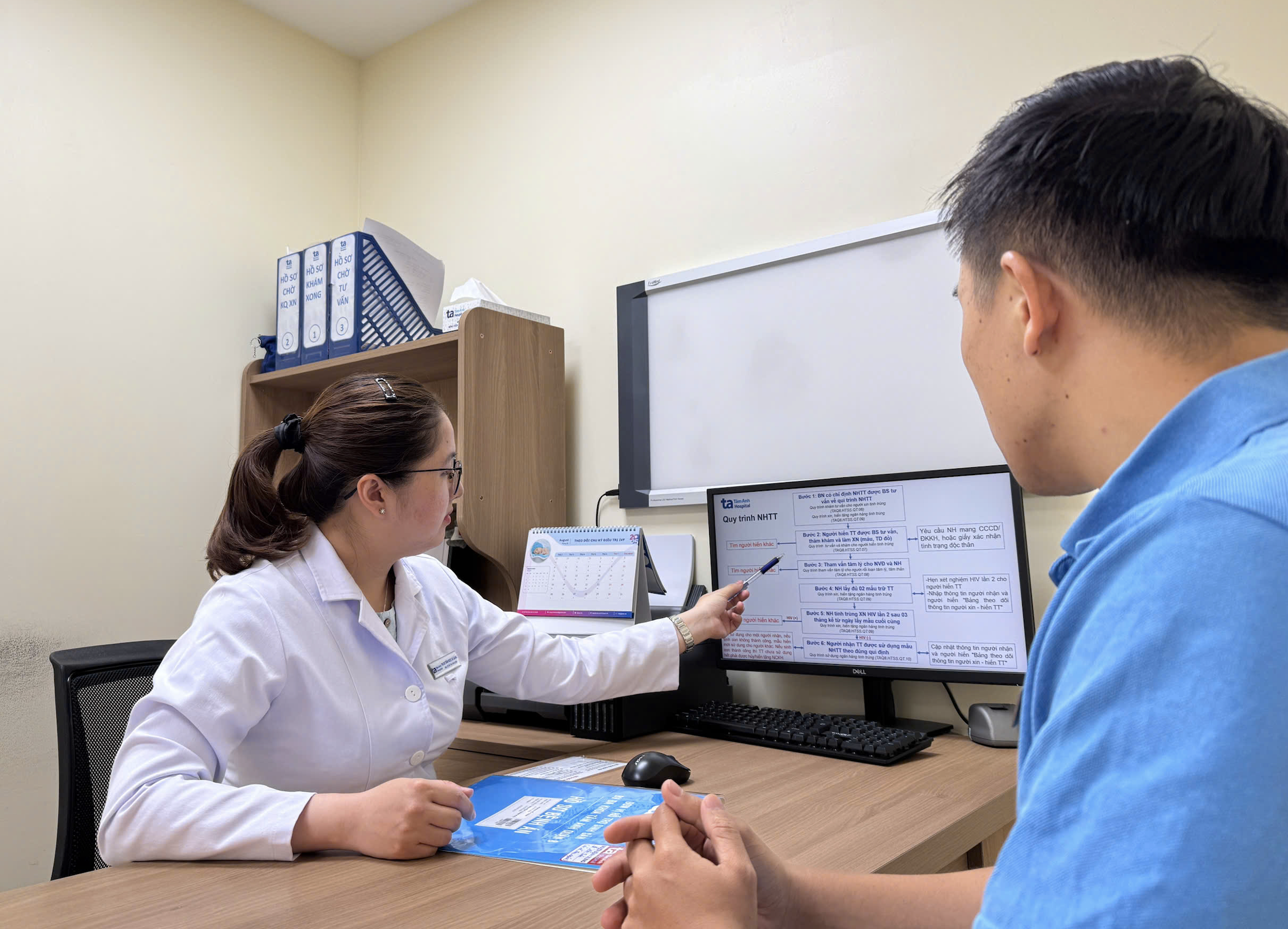Lan's 36-year-old aunt, unmarried, visited the fertility center at Tam Anh General Hospital - District 8 (IVF Tam Anh District 8) to undergo in vitro fertilization (IVF) in hopes of having a child. However, she couldn't find a sperm donor.
According to regulations, sperm donors must be 20 years or older, in good overall and reproductive health, and free of genetic, mental, and infectious diseases (especially HIV). A male family member can be a donor. Samples that meet the standards are stored in the hospital's sperm bank and exchanged for another anonymous, identity-protected sample.
With no brothers in the family, Lan discussed with her 20-year-old husband the possibility of him donating sperm so her aunt could have a child for companionship in her later years. Initially, Lan's husband disagreed, worried that his sperm might be used for someone else, resulting in a child who carried his genes but whose life he wouldn't know, along with the risk of consanguineous marriage with his own children.
Doctor Tran Ngoc Ha Giang from the fertility center reassured Lan and her husband that the probability of such children meeting and marrying was very low. To further mitigate this risk, they agreed to tell their child about the sperm donation when they were old enough and to suggest genetic testing before marriage. Lan's husband finally agreed to visit the hospital for tests and donate his sperm in exchange for a sample for his aunt.
 |
Doctor Ha Giang counsels a man on the sperm donation process. Illustrative photo: Quynh Chau |
The process included a rigorous clinical examination, medical history review of the donor and his family, comprehensive blood tests, semen analysis, and screening for hepatitis B, C, and HIV. Lan's husband was in excellent physical and mental health, and his sperm sample met all the requirements for collection and storage in the hospital's sperm bank. Lan, her husband, and her aunt received thorough counseling to clearly define their rights and responsibilities regarding the child.
Lan's aunt received the anonymous sperm sample and began taking ovarian stimulation medication in early July. Doctors retrieved 9 mature eggs, fertilized them in vitro with the donated sperm, and cultivated 5 good-quality day-5 embryos. They are currently preparing her uterine lining for embryo transfer and pregnancy.
According to Government Decree 207, effective from 1/10, single women have access to assisted reproductive technologies, including egg freezing and sperm donation for IVF. Previously, these techniques required a doctor's recommendation. The new regulation empowers single women to become mothers without medical justification.
In reality, single women pursuing motherhood through IVF face numerous challenges, particularly finding compatible sperm donors. Some find donors whose samples don't meet standards, requiring cancellation and further searches, leading to wasted time and expense.
Doctor Giang explained that single women seeking motherhood receive extensive counseling from doctors and psychologists about the risks of consanguinity and the financial, emotional, and future challenges of single parenthood. The assisted reproduction process for single women is strictly regulated, adhering to legal requirements, especially in sperm selection and exchange.
Hoai Thuong
*The patient's name has been changed












